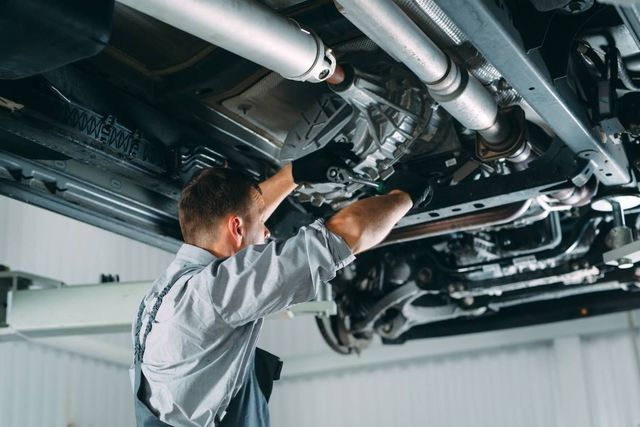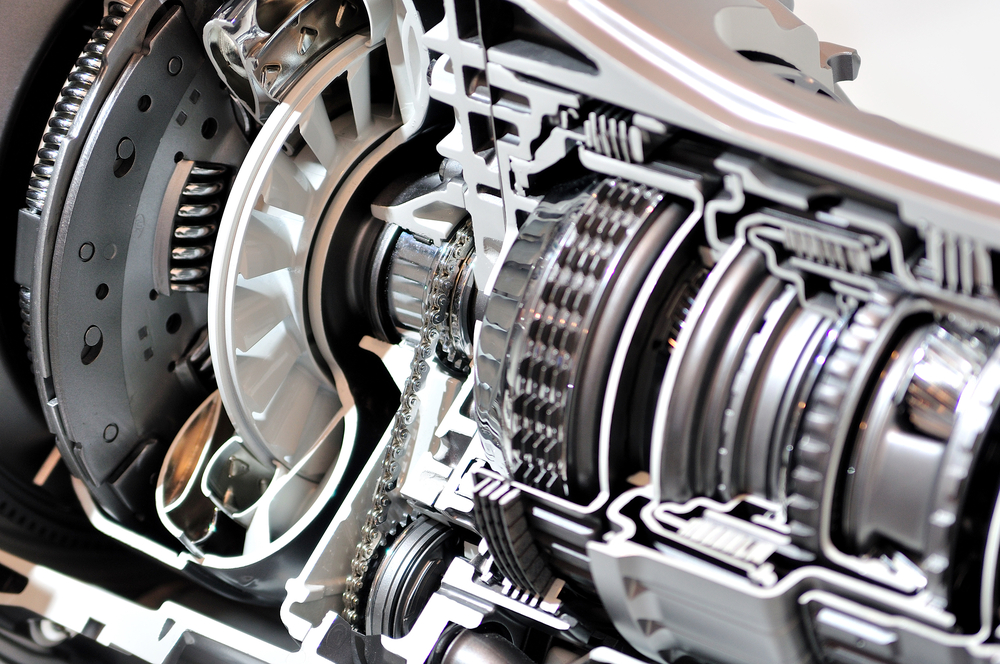Buying a car with transmission problems is risky and often not worth the investment. Repairs can be expensive and may lead to further issues.
Transmission problems can signal deeper mechanical issues that might cost you more in the long run. While some buyers consider saving money on a used car with problems, they may overlook potential repair costs. A faulty transmission can affect the car’s performance and reliability.
It’s essential to assess your budget and the vehicle’s condition thoroughly. If you’re not experienced with car repairs, you might end up spending more than anticipated. Always consider getting a professional inspection before making a decision. Weigh the pros and cons carefully to avoid financial pitfalls later on.
Introduction To Transmission Issues
Transmission problems can be a nightmare for car owners. Understanding these issues helps in making informed decisions. This section covers the role of transmission and common symptoms of problems.
The Role Of Transmission In A Car
The transmission is a vital part of any vehicle. It transfers power from the engine to the wheels. Here are its main functions:
- Power Distribution: It manages how power flows.
- Speed Regulation: It helps control the car’s speed.
- Fuel Efficiency: A good transmission improves fuel economy.
Without a functioning transmission, a car cannot operate properly. Ignoring transmission issues can lead to costly repairs.
Common Symptoms Of Transmission Problems
Identifying transmission problems early can save money and hassle. Look for these common symptoms:
| Symptom | Description |
|---|---|
| Slipping Gears | The car unexpectedly changes gears. |
| Delayed Shifting | There is a lag when changing gears. |
| Unusual Noises | Grinding or whining sounds occur. |
| Fluid Leaks | Transmission fluid puddles under the car. |
| Warning Lights | The check engine light or transmission light turns on. |
Pay attention to these symptoms. They indicate potential transmission issues. Early detection can prevent further damage.

Credit: www.mr-transmission.net
Pros Of Buying A Car With Transmission Problems
Purchasing a car with transmission problems can seem risky. Yet, it offers unique advantages. Buyers can benefit from lower prices and customization options. Here are some key pros to consider.
Potential For Lower Purchase Price
Buying a car with transmission issues often means saving money. Sellers usually lower prices to attract buyers. Here are some reasons why:
- Bargain opportunities: Sellers want to sell quickly.
- Negotiation leverage: Use the transmission problems to negotiate a better deal.
- Lower initial cost: Get a car for a fraction of its value.
This lower purchase price can free up funds for repairs. You can invest in quality parts or services. Always consider the overall cost of ownership.
Opportunity For A Custom Repair
Buying a car with transmission problems gives you a chance to customize repairs. You can choose what to fix and how. Here’s why this is appealing:
- Control over repairs: Decide on the best solutions for your car.
- Quality parts: Use high-quality components for better performance.
- Personalization: Tailor repairs to fit your driving style.
This approach can lead to a more reliable vehicle. You can make your car unique to you. Consider your skills or hire professionals for complex repairs.
Cons Of Buying A Car With Transmission Problems
Purchasing a car with transmission issues can lead to serious drawbacks. Understanding these cons is vital for making an informed decision. Here are the main concerns to consider.
High Repair Costs
Repairing transmission problems can be very expensive. Replacement parts and labor add up quickly. Here’s a quick breakdown of potential costs:
| Repair Type | Average Cost |
|---|---|
| Transmission Fluid Change | $100 – $200 |
| Minor Repairs | $300 – $800 |
| Transmission Rebuild | $1,500 – $3,000 |
| Full Replacement | $3,000 – $5,000+ |
These costs can quickly exceed the car’s value. Spending money on repairs may not make sense.
Risk Of Future Issues
Buying a car with existing transmission problems increases the risk of more issues. Even after repairs, the transmission may fail again. Common future problems include:
- Slipping gears
- Overheating
- Fluid leaks
- Unresponsive shifting
Each of these problems can lead to further costs and headaches. It’s hard to predict how long repairs will last.
Reduced Car Longevity
Cars with transmission issues often have a shorter lifespan. Problems can strain other systems in the vehicle. This can lead to:
- Increased wear on the engine
- Decreased fuel efficiency
- Frequent breakdowns
A vehicle facing these issues will likely not serve you well long-term. Investing in such a car can feel like throwing money away.

Credit: www.crenwelgegmc.com
Evaluating The Severity Of Transmission Damage
Buying a car with transmission problems can be risky. Understanding the severity of the damage helps in decision-making. It is essential to identify whether repairs are manageable or overwhelming. This section covers effective ways to assess transmission issues.
Diagnostic Tools And Techniques
Using the right tools can simplify diagnosis. Here are some common diagnostic tools:
- OBD-II Scanner: Reads error codes from the car’s computer.
- Transmission Fluid Test: Checks fluid quality and level.
- Visual Inspection: Looks for leaks or damage.
Techniques to evaluate transmission health include:
- Road Test: Pay attention to shifting, sounds, and vibrations.
- Fluid Inspection: Look for discoloration or burnt smell.
- Test Drive: Note any slipping or hesitation during acceleration.
Professional Assessment
A professional mechanic can provide expert insights. They have experience diagnosing transmission problems accurately. Here’s what to expect during a professional assessment:
| Assessment Type | Description |
|---|---|
| Computer Diagnostics | Uses advanced tools to read error codes. |
| Fluid Analysis | Tests fluid for contamination and degradation. |
| Physical Inspection | Checks for visible wear and mechanical issues. |
Professional assessments can reveal hidden problems. A detailed report helps in making informed decisions. Always consider the cost of repairs versus the car’s value.
Financial Implications
Buying a car with transmission problems can seem like a good deal. The initial price may be low. However, the long-term expenses can add up quickly. Understanding these financial implications is crucial.
Initial Savings Vs Long-term Expenses
Many buyers focus on the initial savings. A car with transmission issues often has a lower price. This can be tempting, but consider the potential costs.
- Repair Costs: Transmission repairs can be expensive. Costs may range from $1,000 to $5,000.
- Maintenance: Ongoing maintenance can add up. Regular checks may be required.
- Insurance: Some insurance companies charge more for problematic cars.
Calculate total costs before buying. A cheap car can become very expensive.
Impact On Resale Value
Cars with transmission problems usually have lower resale values. Buyers avoid cars with known issues. This impacts how much you can sell the car for later.
| Condition | Resale Value |
|---|---|
| Good Condition | $10,000 |
| Poor Condition (Transmission Issues) | $5,000 |
Investing in a car with problems can lead to loss. Plan for both initial costs and future resale value.
Mechanical Considerations
Buying a car with transmission problems involves several mechanical considerations. Understanding these factors can save money and time. Assessing compatibility of parts and the availability of skilled mechanics is crucial.
Compatibility Of Replacement Parts
Not all transmission parts fit every vehicle. Here are key points to consider:
- Model Specificity: Parts must match the car’s model and year.
- New vs. Used Parts: New parts offer reliability; used parts save money.
- Aftermarket Options: Many aftermarket parts are available but vary in quality.
Check the following table for common parts and their compatibility:
| Part | Compatibility | Cost Range |
|---|---|---|
| Transmission Filter | Model specific | $15 – $50 |
| Transmission Fluid | Universal options | $10 – $30 |
| Transmission Pan | Model specific | $50 – $150 |
Availability Of Expert Mechanics
Finding a qualified mechanic is essential. Here are some tips:
- Local Shops: Look for shops with good reviews.
- Specialization: Choose mechanics who specialize in transmissions.
- Certifications: Check for ASE certification or similar credentials.
Consider these questions before choosing a mechanic:
- Do they have experience with your car model?
- What are their rates for repair?
- Can they source the necessary parts?
Finding the right mechanic can reduce repair costs and time. Ensure they understand the specific issues of your vehicle.
Warranty And Insurance Factors
Buying a car with transmission problems raises important warranty and insurance issues. Understanding these factors can save you money and stress. Below are critical points to consider.
Warranty Voidance Risks
Buying a car with transmission issues may void its warranty. Most warranties cover specific problems. Transmission issues often fall outside these protections.
- Manufacturer’s Warranty: This may not cover pre-existing problems.
- Extended Warranty: Providers may refuse claims if issues existed before purchase.
- DIY Repairs: Making repairs yourself may void coverage.
Always read warranty terms carefully. Ignoring this can lead to unexpected costs.
Insurance Premium Considerations
Insurance rates may increase due to transmission problems. Insurers assess risk based on vehicle condition. Here are key factors that affect premiums:
| Factor | Impact on Premium |
|---|---|
| Transmission Issues | Higher risk leads to increased costs. |
| Repair History | Frequent repairs may raise premiums. |
| Vehicle Age | Older cars typically have higher rates. |
Consult with your insurance agent. They can clarify how transmission issues affect your policy.

Credit: www.reddit.com
Alternatives To Buying A Car With Transmission Problems
Buying a car with transmission problems can lead to costly repairs. Consider these alternatives that offer better value and reliability.
Purchasing A Certified Pre-owned Vehicle
Certified Pre-Owned (CPO) vehicles are a smart choice. They undergo rigorous inspections and come with warranties.
- Less risk of hidden issues.
- Warranty covers potential repairs.
- Usually, lower price than new cars.
Look for CPO programs from reputable brands. This option provides peace of mind and reliable performance.
Leasing A Car
Leasing is another great alternative. It allows you to drive a new car for a fixed period.
Benefits of leasing include:
- Lower monthly payments.
- Access to the latest technology.
- No long-term commitment.
At the end of the lease, return the car. No worry about long-term repairs or depreciation.
Repairing An Existing Vehicle
Consider repairing your current vehicle. Fixing it may be more cost-effective.
Evaluate the following:
- Estimate repair costs.
- Check the car’s overall condition.
- Assess its market value.
Investing in repairs can extend the life of your vehicle. This way, you avoid the hassle of shopping for a new car.
Decision-making Checklist
Buying a car with transmission problems requires careful thought. Use this checklist to guide your decision.
Assessing Personal Mechanical Skills
Understanding your mechanical skills is crucial. Ask yourself the following questions:
- Do you have experience fixing cars?
- Can you perform basic repairs?
- Do you own tools for automotive work?
Evaluate your comfort level with car repairs. If you have strong skills, you may save money. If not, consider the risks.
Calculating Total Cost Of Ownership
Calculate the total cost before buying a car with issues. Consider the following expenses:
| Expense Type | Estimated Cost |
|---|---|
| Repairs | $500 – $3000 |
| Maintenance | $200 – $600 annually |
| Insurance | $800 – $1500 annually |
| Fuel | $100 – $300 monthly |
Sum up all costs. Compare this with your budget. Ensure you can afford it without strain.
Considering Long-term Use And Needs
Think about how you will use the car. Will it meet your needs? Consider the following:
- How long do you plan to keep the car?
- Will it serve your daily commute?
- Do you need it for family trips?
Assess whether a car with transmission problems fits your lifestyle. Long-term reliability matters most.
Frequently Asked Questions
Should I Buy A Car With Transmission Issues?
Purchasing a car with transmission problems can be risky. Transmission repairs can be costly and complex. It’s essential to assess the extent of the issues before making a decision. Consider the vehicle’s overall condition and your budget for repairs. Always seek a professional inspection first.
What Are Common Signs Of Transmission Problems?
Common signs of transmission issues include slipping gears, unusual noises, and leaking fluid. You may also notice delayed engagement when shifting from park to drive. Warning lights on the dashboard can indicate transmission trouble. If you experience these symptoms, consult a mechanic immediately for diagnosis.
How Much Does It Cost To Fix Transmission Problems?
The cost to fix transmission issues varies significantly. Simple repairs may range from $150 to $500. More complex problems could exceed $1,000 to $3,500. Factors influencing the cost include the make and model of the vehicle, labor charges, and parts required.
Always get multiple quotes before proceeding.
Can I Drive A Car With Transmission Problems?
Driving a car with transmission problems is not advisable. Continuing to drive can worsen the damage and lead to more expensive repairs. You may experience reduced performance, safety issues, and potential breakdowns. If you suspect transmission trouble, stop driving and seek professional help immediately.
Conclusion
Buying a car with transmission problems can be risky. Weigh the potential repair costs against the vehicle’s value. Consider your budget and how much you’re willing to invest. Always get a professional inspection before making a decision. A well-informed choice can save you money and stress in the long run.
